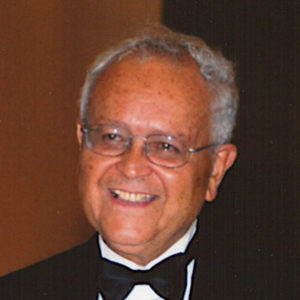Stanford Law’s Bill Gould on Historic SCOTUS Employment Decision Prohibiting Discrimination “Because of Sex”

In today’s landmark Supreme Court decision BOSTOCK v. CLAYTON COUNTY, GEORGIA , the Court confirmed that Title VII of the Civil Rights Act of 1964, which prohibits employment discrimination “because of sex,” applies to discrimination based on sexual orientation and gender identity. Here, labor and discrimination law expert Professor William B. Gould, who served as chairman of the National Labor Relations Board from 1994-1998, discusses the case and its implications.
Can you talk about how the Equal Employment Opportunity Commission’s decision to extend equal protections to gay and transgender people under federal employment influenced today’s decision?
The EEOC 2015 decision to interpret the statute to prohibit sexual orientation discrimination played no or little role in the Courts decision. Though in some respects the Commission was initially modeled after the NLRB, the same judicial deference to expertise has not been provided. Curiously, it was Justice Alito—hardly known for reliance upon specialized labor agencies—who invoked the EEOC and its opinions for 48 years contrary to the 2015 opinion? The majority opinion of Justice Gorsuch was based upon interpretation of statutory text.
Several Supreme Court decisions also influenced today’s ruling, as did the EEOC’s move. Can you talk about that path and how prior rulings stemming from O’Connor in 1989 and the harassment cases locked in the logic for today’s decision?
The Court relied upon 3 lines of authority where discrimination had been found where a characteristic beyond sex itself had been responsible for the employer’s decision, i.e.,
(a)discrimination against women who were mothers was found to be illegal when men who were fathers weren’t similarly treated;
(b)the requirement that women pay more into a pension fund deemed illegal even though as a group they live longer and;
(c) same-sex harassment deemed unlawful notwithstanding the fact that the statute doesn’t mention harassment and there was no evidence that anti-gay discrimination was an evil about which Congress was concerned.
Also important to the Court’s analysis is Justice O’Connor’s highly regarded and influential 1989 ruling prohibiting dress code and other standards imposed on one sex, i.e., wearing of pants by women and a preference for temperament for women not required of men.
This decision, outlawing sexual stereotypes in employment decision making led directly to appellate court rulings prohibiting employer stereotyping on the basis of appearance or behavior—and brought the judiciary to the water’s edge of sexual orientation. Like other cases relied upon by Justice Gorsuch, the root cause of illegality was differential treatment. In the same sex harassment case, the man would have been treated differently if he was a woman.
Congress didn’t focus on gay and transgender rights in the Civil Rights Act of 1964, did it? So how do you think Gorsuch and Roberts came around to today’s decision?
Here also, like the harassment cases and others discriminated against, gay workers would have been treated favorably if they were attracted to the opposite sex. The text of the statute directly prohibiting differential treatment based upon sex was controlling.
This approach, associated with Justice Scalia who disregarded legislative history when the statutory language was clear, was one that trapped justices subscribing to his views—not withstanding the dissenters’ opinions. For clearly Congress, as the conservative dissents maintained, had absolutely no intent to prohibit anti-gay discrimination. Indeed, as someone who was in Washington in 1964 and assiduously read the debates every day, I would venture to guess that the protection of gays would have been a deal breaker. But the Scalia approach prevailed today. The statutory text prevailed.
This is a big win for equal rights. Do you have anything else to add?
This is an historic ruling, up there with some of the other SCOTUS decisions like Brown, Griggs v Duke Power on testing and educational requirements, and same-sex marriage. Like those decisions, clearly this is one that will last generations and one for the history books.
William B. Gould IV, Charles A. Beardsley Professor of Law, Emeritus at Stanford Law School, is a prolific scholar of labor and discrimination law who has been an influential voice in worker–management relations for more than fifty years. Gould served as Chairman of the National Labor Relations Board (NLRB, 1994–98) and subsequently Chairman of the California Agricultural Labor Relations Board (2014-2017). He has been a member of the National Academy of Arbitrators since 1970. Early in his career, he served as a consultant to the EEOC and lead counsel on key employment discrimination cases. His most recent publication, A Primer on American Labor Law (6th edition. 2019), addresses many of the issues raised in today’s decision.
